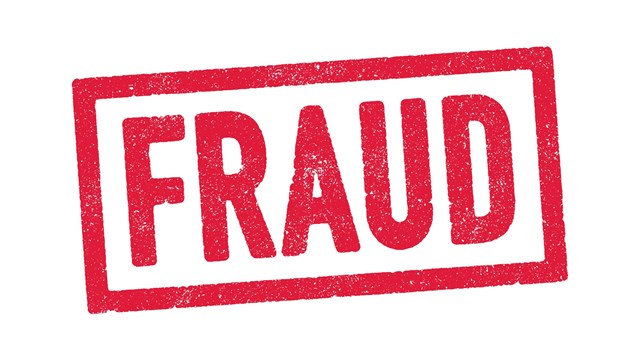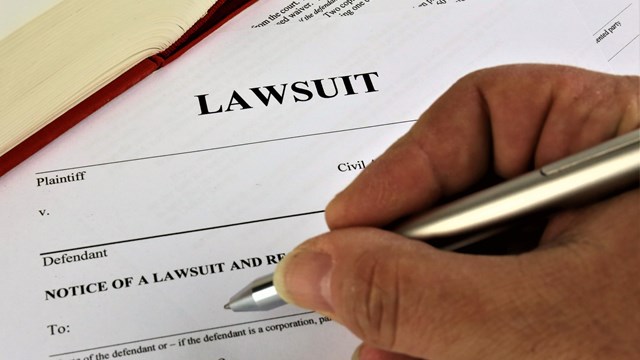Co-op and condo boards often become involved in disputes with contractors and subcontractors who perform work either on the building's common areas, or within individual apartments for a shareholder or unit owner. A mechanic's lien and lien enforcement action is the most popular and most potent remedy for contractors, subcontractors, and suppliers of materials to recover payment for services or materials supplied to a construction project, of which building owners and managers should be aware.
New York State's Lien Law is one of the most favorable to contractors. The statute provides that a licensed contractor, subcontractor or supplier of materials may file a mechanic's lien for the unpaid balance due on labor and materials provided to improve real property. This lien acts as an encumbrance upon the real property where the work took place. A mechanic's lien runs against the property, and as a result, will remain in effect despite the fact that the property may change hands.
It should be noted from the outset that a mechanic's lien does not grant a contractor an entitlement to payment. Rather, by encumbering the real property where the work occurred, a mechanic's lien provides the contractor with security and priority for the payment of the labor and services provided.
Mechanics' Liens in a Nutshell
A mechanic's lien against private property is effective from the date it is filed with the county clerk. The lien must be filed within eight months of the date the contractor last provided services or materials at the building. The contractor must commence an action to enforce the lien or must renew the lien within one year, or the lien will automatically expire. All licensed contractors, subcontractors, and providers of materials at all levels may file a mechanic's lien, even if the property owner was not aware they were on the job. In order to be eligible to file a lien, the contractor must have performed work in the nature of a "permanent improvement" at the premises. However, courts have liberally construed "permanent improvement" to include such work as, for example, installation of carpeting. In addition, the property owner must have consented to work being performed at the premises.
Special Considerations for Co-ops and Condos
With respect to condos, each apartment unit is owned by the unit owner in fee simple, and is real property. As a result, if a condo unit owner fails to pay a contractor who performed work at the unit at their request, the contractor may file a lien against the unit. However, with respect to this scenario, courts have consistently dismissed liens filed against the entire condominium or against other unaffected units in addition to the unit where the work was performed, on the basis that the other property owners in the building did not have a role in consenting to the work being performed in that individual's unit.
Similarly, even if the condo board hires a contractor to perform work on a portion of the common elements, contractors are not permitted to file liens with respect to that work, unless unanimous approval to the work from the unit owners had been obtained. This rule was codified by Real Property Law Section 339-l.
Thus, with respect to condominiums, mechanic's liens can be filed against individual units involved with the work, but "blanket" liens against the building or the common elements are not permitted.
The contrary is true of co-ops. In co-ops, where shareholders own stock and a proprietary lease appurtenant to an apartment, the only real property to be subjected to a lien is the underlying property - the building as a whole. The rule still applies that the owner of the real property, i.e. the cooperative, must have consented to the work. However, courts have charged the cooperative board of directors with overseeing work that takes place in the building, as the cooperative has control and possession of the apartments as a landlord. Essentially, courts have held that explicit consent to the work by the board is not required, and implicit consent can be inferred if the cooperative's board of directors was aware of the work, or even if the work was openly performed in the building. Despite the fact that the Notice of Lien may identify the specific apartment in which work was performed, the lien will be filed by the county clerk against the building as a whole.
Negative Implications of Mechanics' Liens
As mentioned above, a mechanic's lien is an encumbrance on real property where the work occurred. The lienor has the right to commence an action to enforce the lien, also known as foreclosing upon the lien, which seeks to sell the real property to satisfy the amount claimed due by the contractor. In a cooperative, the main drawback of a mechanic's lien is that any purchasers or refinancing shareholders will have difficulty obtaining financing from lending banks. Lenders at a minimum will require the cooperative to provide an indemnification with respect to the lien before closing. Similarly, the cooperative itself would have complications or delays in obtaining financing, such as refinancing its underlying mortgage. This is because the Lien Law provides for mechanic's liens to have priority ahead of mortgages, which lenders view as a risk.
A general drawback is that, should the improvements installed by the contractor be damaged as the result of fire or other casualty, any insurance payments are subject to the lien. Still another disadvantage is that the real property owner can ultimately become responsible for the amounts claimed due under the lien, even if they never contracted directly with the lienor. Consider the example in which a cooperative retains a contractor, work is performed, and the contractor is paid, but an unreimbursed subcontractor comes forward and files a mechanic's lien. In an action to foreclose on the lien, the cooperative could ultimately be forced to pay the subcontractor, despite the contractor already having been paid. The cooperative would certainly then look to the contractor for subsequent reimbursement - but at significant cost and legal complication.
In addition, a contractor is not restricted to its lien remedy, but is able to simultaneously pursue other remedies that may be available as well. For instance, a subcontractor could commence an action to foreclose on a mechanic's lien, but may additionally commence a separate breach of contract action against the contractor who retained them. Thus, there is a possibility the building could become involved in a dispute on two fronts. For this reason, it is generally advisable to bond and discharge a lien prior to paying the amount claimed due, to avoid the possibility of double liability.
How to Extinguish a Mechanics' Lien
There are five main ways to have a mechanic's lien removed of record. First, it can be dismissed by motion on the basis of being defective, such as if the contractor was unlicensed or if the lien was filed against a condominium building instead of the appropriate unit. Second, the lien may expire on its own terms if it is not renewed annually or the lienor fails to commence a foreclosure action. Third, the lien can be "bonded off," which is a procedure by which you would have a bond and surety company stand-in as security under the lien, instead of the real property. Bonding and discharging a lien can be costly and take several weeks or months. Fourth, if the building successfully defends a lien foreclosure action, the lien may be reduced or dismissed. Finally, if the amount claimed due is paid, the lien is extinguished.
Possible Negotiating Strategies
Certainly, contractors who allow their lien to expire greatly weaken their negotiating position. In some instances, if a lien is small in amount, the building can opt to simply be patient and hope the situation will "go away." However, on many occasions, the lien is for a large amount or the building and the contractor are involved in a more serious dispute. The lien in such an instance will need to be discharged, and the underlying dispute negotiated or resolved via litigation. Of course, a number of defenses can be raised should the lienor commence an action to foreclose upon the lien, such as, for failing to complete the work or performing defective work, among others. These types of defenses could partially or completely bar recovery by the lienor.
The most effective means of preventing a costly mechanic's lien dispute is to have well-drafted alteration agreements and construction contracts. A tough alteration agreement can require shareholders and unit owners to remove any liens with respect to work in their apartments, in default of which the individual can be charged back for all attorneys' fees and expenses incurred by the building in removing the lien. With respect to cooperatives, since the cooperative and shareholder have a landlord-tenant relationship, the shareholder can also be held in default of the proprietary lease for failing to remove a lien against the building. A standard provision in proprietary leases requires shareholders to cure any mechanic's liens filed against the building within 10 days.
Well-drafted provisions in a construction contract can require the architect or contractor (in the case of subcontractor liens) to bond-off liens, and can provide for the building to be awarded attorneys' fees if the lien is not bonded, as failure to do so would be a material breach of the construction contract. This is particularly true if the contractor was paid, but the subcontractor was not. As a general rule, the property owner should not undertake to discharge a lien itself if the contractor was paid in full.
In addition, construction contracts should be drafted in such a way to ensure that board members know who will be working at the building - the contractor's ability to hire subcontractors without the board's knowledge and consent should be restricted. Additionally, as is common, a percentage of the funds should be withheld until the contract work is complete and approved. This will ensure funds are available at the end of the project to resolve claims, such as by unpaid lienors. The unpaid amount can be used as leverage to compel a contractor to pay a lienor or discharge a lien.
It should be noted that "no lien" provisions are void and unenforceable as against public policy. Thus, a contract cannot simply deny a contractor the right to file a mechanic's lien. Buildings may, however, require a contractor to deliver a "waiver of lien" for each portion of the payment received. Each waiver of lien should require the contractor to defend and indemnify an owner from claims by any contractors, subcontractors, and suppliers.
Remember the Alteration Agreement
In conclusion, while mechanic's liens may be a powerful remedy of contractors to ensure payment, well-drafted construction contracts and alteration agreements will help to both minimize disputes with contractors and shareholders or unit owners by defining the parties' respective obligations and consequences in the event of a breach, including with respect to filing and discharge of mechanic's liens.
Denise Campbell is an associate of the Manhattan law firm of Rosen & Livingston, which specializes in cooperative and condominium law. Her colleague, Bruce A. Cholst, Esq., contributed to this article.







7 Comments
Leave a Comment